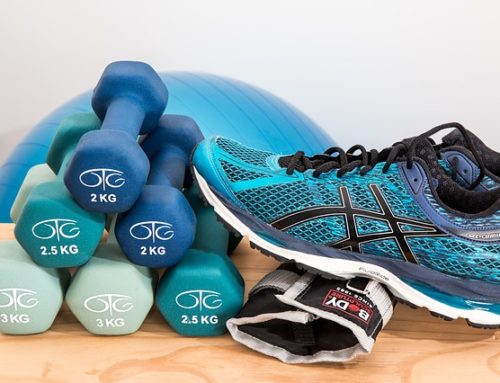What is the first advice that doctors give their clients to help them lose weight?
“Cut your carbs.”
What is the first advice that aspiring bodybuilders receive in their attempts to gain weight and build muscle?
“Eat more protein”
What is one of the most popular phrases you hear every time when conversation goes towards improving someone’s nutrition?
“Watch out and look for low-fat”
Whether these statements are true or not, we will discuss later. Meanwhile here is the problem with so called “macronutrient” approach in nutrition – many people don’t know what foods contain more protein, or more carbohydrates, or less fat.
Today discussion will be about this exact topic that puzzles so many people in their quest for healthier lifestyle.
But first, let’s touch on the very important issue – is it REALLY true that you have to eat more protein, less carbs, and less fat to be healthier? The answer is, as always – it is partially true. For vast majority of people it works the best this way:
- Eat more protein
- Eat more vegetables, which contains healthy carbohydrates and fiber, therefore leading to consume less refined carbohydrates and sugars
- Eat healthy fats. Now, LESS fat for many of us is not true. We need fats, it is one of vital macronutrients, and reducing it in our diet won’t be healthy. However, changing the quality of fats, making them healthier, will do the trick.
So, with this in mind, let’s tackle today’s topic:
WHAT FOODS CONTAIN PROTEIN?

- Meats. Beef, pork, lamb, veal, rabbit, and such. These are the options that come to mind first. Of course, HOW you prepare these food is very important in terms of maintaining healthy ingredients and reducing all the garbage.
- Poultry. This is mostly about chicken, turkey, duck, geese and so on.
- Fish and animal seafood. Tuna, salmon, halibut, tilapia, bass, herring, and things like shrimp, octopus and squid. Very high in protein, and, if you are shopping for wild-caught, you will have the best health benefits.
- Whole milk, plain yogurt, Greek yogurt, unprocessed cheeses, cottage cheese – all of these products are high in protein, both slower and faster digesting, which makes them very good source. However, it is important to figure out for yourself, if you are lactose intolerant, or lactose allergic. In that case your choice may be limited to only few of these products.
- Egg whites contain the most protein in the egg, but don’t fall into believing that you only need to eat egg whites. Eggs are meant to be eaten with egg yolk as well, as egg yolk is high in healthy fats.
- Variety of beans – black beans, pinto beans, chickpeas, kidney beans, navy beans. Legumes
- One more very important source of protein, although it is not a food but a supplement – protein powders. In case if you are not eating your required amount of protein, protein powder is a quick and easy way

WHAT FOODS CONTAIN CARBOHYDRATES?

Before I list foods that contain carbohydrates, there is something important to mention. There are several types of carbohydrates, to make it easy, let’s call them simple and complex carbohydrates. The difference between them is their structure, and, thus, how they are being digested. Simple carbohydrates contain shorter chains of molecules of glucose; therefore their digestion will be faster. Complex carbohydrates consist of longer chains of molecules of glucose, and their digestion is taking more time.
Even though for the last two decades media is bombarding us with belief that carbohydrates are absolute evil, and, in order to stay healthy, we have to avoid them altogether, it is not true. Carbohydrates are main source of energy for us, and they are absolutely vital for providing proper type of fuel for exercise. So it is not about the type of food, but timing. It is the main condition under which we have to utilize our carbs:
- Simple carbs are more essential for peri-workout time (before, during, and after workout time)
- Complex carbs are better suited for the rest of the day, and you should be aware of the ratio between your protein, fats and carbs
And now let’s move on to carbohydrate-containing foods:
Simple carbohydrate rich foods:
- Tropical fruit: orange, mango, bananas, kiwi, pineapple, mandarin, papaya
- Sweet vegetables
- Berries: raspberry, strawberry, blueberry, blackberry, grapes, cherry
- Starchy vegetables – potatoes
- Sugary drinks – pretty much everything, from Gatorade to Pepsi. Now, remember – sugar is evil when it spikes insulin when you don’t need it. However, you cannot blame big companies like Coca Cola for nation’s obesity. It is our own lack of discipline and self-control
- Grain products – white, wild and brown rice, oats, barley,
- Products made from flour – pretty much all of them have high glycemic index, so sugar in the blood will rise quick and significant once you eat these products.
- Sweets
Complex carbohydrate rich foods:
- Grains – oats, barley, buckwheat and quinoa, to list a few that are the most accessible and healthy
- Whole wheat products – whole wheat pasta and noodles usually go well as a relatively slow carb source
- Non-starchy vegetables – broccoli, tomatoes, cauliflower, kale, spinach, asparagus, cucumber, bell peppers
- Sweet potatoes
- Non-tropical fruit – apple, melons, melons, plums, pears

To remind once more – carbohydrates are not bad for you, IF you are smart about timing and portion. Eat them at the right time, and eat them in small to moderate amounts – and your workouts will be fuelled properly, as well as belly fat will melt down.
WHAT FOODS CONTAIN FAT?
When it comes to fats, myths and misconceptions are even more wide-spread and on top of our minds, than myths about carbohydrates. The main idea that comes across all of them is if you eat fat then you become fat. Therefore, if you want to stay lean, stay away from fat of any form. This is lie. Fats that we receive with food come from various sources and in different types. For better health it is important to have monounsaturated and polyunsaturated fats. All others are not healthy, but not in the way you may hear. Unhealthy fats are dangerous for our heart and vessels, they contribute to creating atherosclerotic patches on inner wall of our vessels, and, when they are happen to be in heart, it is called coronary heart disease – still number one killer in the world.
Healthy fats, however, are doing exactly opposite – they help to clean up vessels and heart. Another function of fats in our body – they are structural part of some hormones, such as testosterone. If fat intake is too low in our body, then this hormone production may be compromised and/or decreased, and it is dangerous – pretty much any hormonal imbalance is dangerous and unhealthy.
Okay, so here are fat sources that are healthy and necessary:
Monounsaturated fats:
- Nuts and seeds
- Olive oil
- Avocados

Polyunsaturated fats:
- Fish oil
- Fatter types of fish
- Flax oil
- Eggs from free-range hens

When you have that in your diet, you are covering basic need of your body for fats. It is macronutrient, component that has to consist anywhere between 15 to 45 percent of daily calorie intake. It cannot be ignored.
Now you have a cheat-sheet – foods that contain proteins, fats and carbohydrates. Add to this water, time these components properly, and don’t forget to exercise – and you have it covered.
Next time we will talk about how to time and space all these foods and nutrients, as well as how to hydrate properly.







Leave A Comment